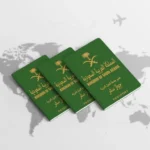There are several types of Indian eVisas including tourist, business, and medical variants. An Indian Visa may be rejected for reasons like incorrect information or lack of documentation.
Navigating the intricate landscape of Indian eVisas requires a clear understanding of the diverse categories available. Tourists, business professionals, and those seeking medical treatment often utilize this streamlined online application system to facilitate their travel to India. The convenience of applying for an Indian eVisa is matched by the system’s efficiency in processing legitimate travel requests.
However, applicants must fill out their forms accurately and provide all necessary documents to avoid the disappointment of rejection. Meticulous attention to detail can significantly increase the likelihood of approval, ensuring travelers can embark on their journey to India without any hindrances. Understanding the eVisa types and common pitfalls is crucial for a successful application. TYPES OF INDIAN EVISA
Understanding Indian Evisa
India offers an electronic visa (Evisa) to citizens of over 160 countries, facilitating smooth entry into the country. This online process streamlines the application procedure, eliminating the need for physical visits to embassies or consulates. An Indian Evisa can be categorized into multiple types, each tailored to suit the different travel purposes of international visitors.
| Visa Type | Purpose |
| Tourist Evisa | Leisure, sightseeing, visiting friends and relatives |
| Business Evisa | Business and trade activities |
| Medical Evisa | Medical treatment and consultations |
| Conference Evisa | Attending conferences organized by the Government of India |
The process of applying for an Evisa is relatively straightforward, requiring applicants to submit relevant documents and pay the visa fee online. Despite the ease, applicants must ensure the accuracy of their information to avoid the risk of visa rejection. Common reasons for rejection include incomplete application forms, incorrect details, and failure to meet eligibility criteria.
Tourist Evisa
The Tourist Evisa for India is designed specifically for individuals who wish to visit the country for recreation, sightseeing, or to meet friends and relatives. For eligibility, applicants must hold a passport valid for at least six months from the date of arrival in India and have no history of criminal convictions. The tourist e-visa is typically granted for short-term stays, ranging from 30 days to a year, depending on the individual’s nationality.
Starting the application process for a Tourist Evisa requires applicants to fill out an online form with personal, passport, and travel information. A recent photograph and a copy of the passport’s bio page will need to be uploaded. Certain nationalities may be asked for additional documentation. Once submitted, applicants can track their evisa status online and should expect to receive an electronic visa via email, which must be printed out and presented upon arrival in India.
Business Evisa
The Business Evisa is designed for international visitors who intend to engage in business activities in India. Eligible applicants include those attending business meetings, setting up industrial/business ventures, conducting tours, delivering lectures, and recruiting manpower. To be eligible, individuals must possess a valid passport and a letter from the respective Indian company. INDIAN VISA REJECTED
| Step | Task | Documentation Required |
| 1 | Complete Online Application | Photograph, Passport Details |
| 2 | Payment of Fees | Credit/Debit Card or Payment Wallet |
| 3 | Submit Relevant Documents | Business Letter, Invitation Letter |
| 4 | Visa Confirmation | E-Visa sent via Email |
Upon successful submission of the application and documents, the review process commences. It’s crucial for applicants to ensure all provided information accurately reflects their purpose. Errors or inconsistencies could lead to a rejection of the visa application.
Medical Evisa
The Medical Evisa is specifically designed for foreign nationals seeking medical treatment in India. To qualify, individuals must have a hospital letter from a recognized Indian hospital. The eVisa for medical purposes is short-term, generally issued for the length of the treatment or a maximum of 60 days.
Eligibility criteria mandate that applicants must not travel to India for medical treatment on a tourist visa but must apply for the medical eVisa explicitly. Immediate family members may apply for a Medical Attendant Visa alongside the patient’s medical eVisa application.
| Application Step | Description |
| Online Application | Complete the form and upload necessary documents, including a photo and passport copy. |
| Hospital Letter | Attach a letter from the Indian hospital where treatment is planned. |
| Payment | Pay the eVisa fees prior to submission of the application. |
| Visa Issuance | After review, the eVisa is sent via email. |
Avoiding Rejection Tips
Understanding the nuances of the Indian eVisa application process is crucial to avoid rejection. Many applicants face setbacks due to common mistakes which are easily preventable. A predominant issue is the submission of incorrect or unclear documentation. It is essential to double-check that all forms are completely and accurately filled out, and that supporting documents, such as passport photos and personal identification, adhere to the specified requirements.
Another point of failure is related to technical errors. Always ensure that the information provided matches the details in your passport and that there is no discrepancy, which can cause delays or outright rejection. Paying attention to small details, such as the validity of your passport being correct and having at least six months before expiry, can be a decisive factor. For a successful application, keep these tips in mind and carefully review the application before submission.
Conclusion
Navigating the complexities of Indian eVisa types and avoiding rejection can be straightforward. Ensure your application is accurate and complete; mistakes often lead to denials. By understanding the specific visa requirements and preparing properly, travelers can enhance their chances of approval.










